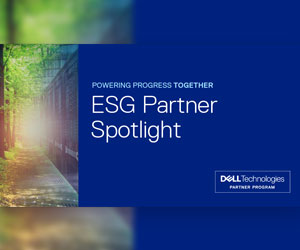Virtual Desktop Infrastructure, or VDI, allows enterprises to run a user desktop inside a virtual machine that lives on a server in the datacenter. This solution has become tremendously popular in recent years as a means for allowing companies to maintain operations with a virtual work staff.
For organizations that have not embraced VDI technology just yet, making the transition can be frustrating. This is because there is both old and new hardware available on the market, and the decision to go one way or another can negatively or positively impact performance and / or price.
But there is a proven solution out there, and it comes in the form of Dell EMC™ PowerEdge™ R7515 servers powered by AMD EPYC™ 75F3 processors.
About the Dell EMC PowerEdge R7515
According to Dell Technologies, these servers offer the following high-level specifications:
• Up to 64 high performance AMD 3rd Gen cores
• PCIe Gen4 for high throughput connectivity
• Support for up to 24 SAS/SATA/NVMe drives
• High core count to support VM density
• Multi-die architecture for “low latency and floating-point performance for big data and containers”
About AMD EPYC 75F3 processors
These 32-core processors use AMD Infinity Architecture and are part of the AMD EPYC 7003 Series. The latest offering from AMD, 3rd Gen EPYC processors offer increased I/O with “up to 32MB L3 cache per core,” 7nm x86 technology, and new security features like Secure Encrypted Virtualization, Secure Nested Paging (SEV-SNP), and Encrypted State (SEV-ES).
AMD positions the EPYC 75F3 model as being well-suited for high frequency use cases such as VM density, virtualization, and VDI.
Support 20% more VDI users | Get a better value with a 11% lower cost per VDI user
To ensure its claims of superior performance were, in fact, true, Dell Technologies ran some tests on the Dell EMC PowerEdge R7515 servers powered by AMD EPYC processors at the Principled Technologies data center.
Here, Dell tested with a VMware Horizon® 8 environment on a Dell EMC PowerEdge R7515 server powered by a 3rd Gen AMD EPYC 75F3 processor, and then configured the same server with a 2nd Gen AMD EPYC 7542 processor. The results indicated that the Dell EMC PowerEdge R7515 server configuration powered by the AMD EPYC 75F3 processor could support up to 20 percent more VDI users than with the 2nd Gen AMD EPYC 7542 processor.
Dell also compared the hardware and support price for both configurations and found that each VDI user could cost 11 percent less for the Dell EMC PowerEdge R7515 server with the AMD EPYC 75F3 processor.
Provide better server support to your customers
Solution providers who can educate their customers and get them to invest in a Dell EMC PowerEdge R7515 server equipped with this 3rd Gen AMD EPYC processor will put these organizations in a position to quickly benefit from greater value potential by supporting more users which, in turn, could help their server purchase last longer before the next big upgrade.
Learn more about the Dell EMC PowerEdge R7515 server powered by a 3rd Gen AMD EPYC 75F3 processor.





















